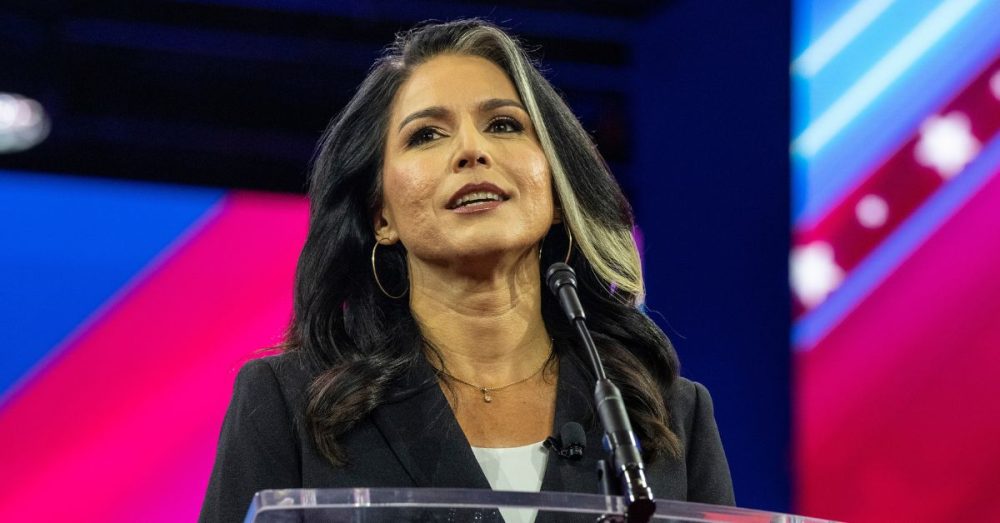Former Rep. Tulsi Gabbard recently edited her social media reaction to the attempted assassination of former President Donald Trump.
Gabbard, who previously represented Hawaii’s second congressional district from 2013 to 2021, left the Democratic Party in October 2022 and became an independent.
Her since-edited tweet first read, “The assassination attempt on President Trump is a logical consequence of his Deep State opponents repeatedly comparing him to Adolf Hitler. After all, if Trump truly was another Hitler, wouldn’t it be their moral duty to assassinate him?”
The tweet was edited around 20 minutes later, at 12:31 a.m. local time on July 14, to strike the reference to the “deep state”:
“The assassination attempt on President Trump is a logical consequence of repeatedly comparing him to Adolf Hitler. After all, if Trump truly was another Hitler, wouldn’t it be their moral duty to assassinate him?”
I would start here…. pic.twitter.com/RoHVfMSRro
— ??A2Z?? (@XXX84158494) July 14, 2024
The change to the tweet went largely unnoticed by online commentators and totally unnoticed by the handful of news publications that used her tweet in their print reporting.
Although they did not reference the edit, some social media users commented on it as if the part about the deep state was still included. One commenter said, “I would start here….,” and he attached a political cartoon of two federal agents discussing the Trump indictments in front of the presidential portrait of President John F. Kennedy, who was assassinated while campaigning in Dallas in 1963.
Newsmax published a story about the tweet. However, it also did not mention the change.
Oxford Languages defines the deep state as “a body of people, typically influential members of government agencies or the military, believed to be involved in the secret manipulation or control of government policy.” The phrase has adorned numerous popular political science books, including Deep State: Trump, the FBI, and the Rule of Law by Pulitzer Prize winner James B. Stewart.
The concept has been common in many political circles since the 2000s and came into popular usage in the 2010s. It is most commonly applied to mid-level government bureaucrats who are typically unknown to the public, remain in their jobs during presidential transitions, and are believed to wield tremendous influence over government policy.
While some outlets like CNN call the concept a “conspiracy theory,” other further left publications like Vox also recognize its existence, although they squabble with Trump supporters about its exact definition. Left-leaning Politico concurs that it is real.


